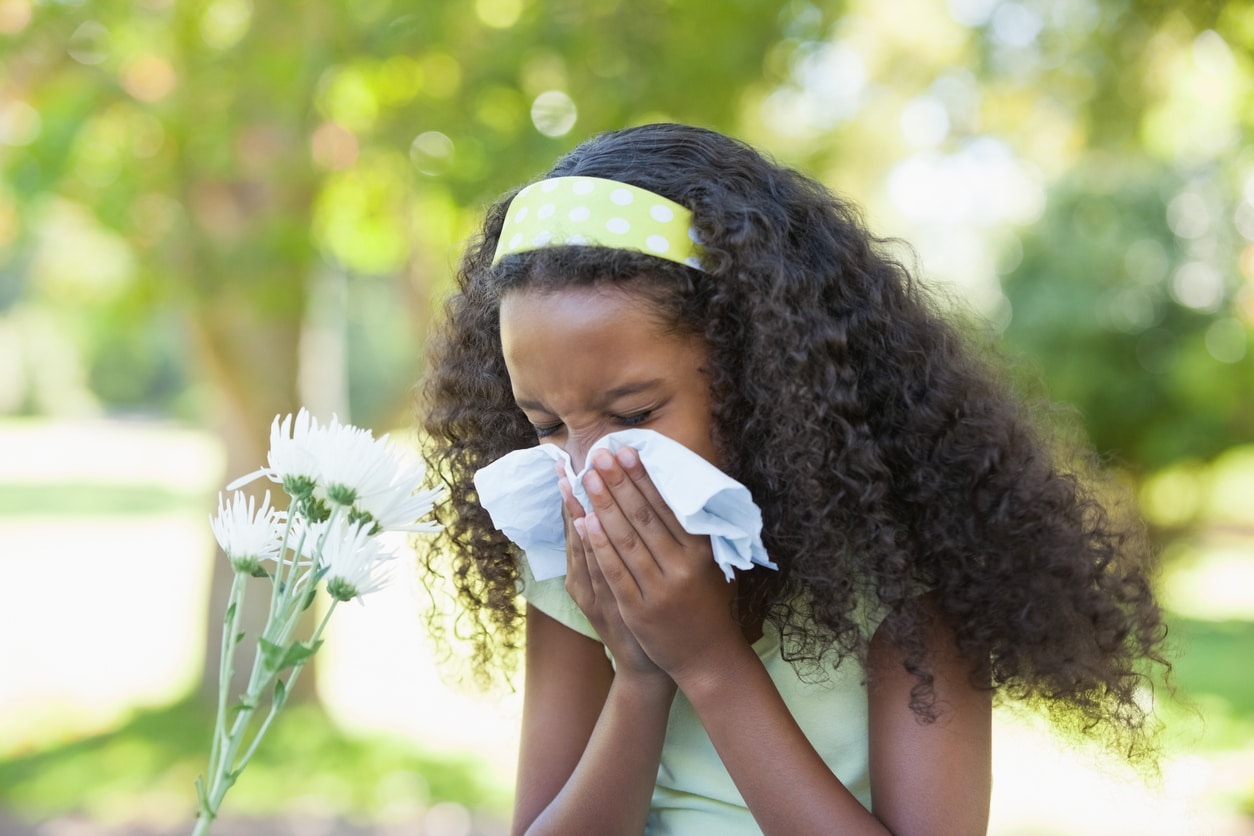It’s hard to see your children suffer from allergies. Seasonal symptoms can disrupt their sleep, affect their mood and make everyday spring activities challenging. As a parent, it’s natural to want to ease their discomfort and help them feel better. Let’s look at some practical tips to help manage your child’s allergies and bring you both some relief.
Keep Your Home an Allergy-Free Zone

Your home may play host to more allergens than you realize. Dust mites can hide under couches, pet dander can get stuck in your carpeting and pollen can fly in through your windows. Cleaning is the best way to minimize allergen buildup. Try a few of the following suggestions:
- Vacuum regularly to remove dust mites, pet dander and pollen
- Wash bedding, including throw pillows, regularly
- Shower after coming home from green spaces (parks, gardens, etc.)
- Clean your bathroom, kitchen and basement regularly to minimize mold buildup
- Wipe down large-leaf house plants to remove dust buildup
In addition to regular cleaning, use allergy window screens or keep your windows closed during allergy season, and run exhaust fans while cooking or showering.
Find Indoor Activities on High-Pollen Days
While your child may love running through the sprinklers or hanging out at the park during spring and summer, these activities aren’t the best idea on high-pollen days. Keep an eye on the pollen count in your area and consider a few of these fun indoor activities to help your child have fun without the sneezing:
- Head to Play Street Museum for crafts, learning and an indoor play center
- Try mini golf
- Set up an obstacle course with couch pillows, blankets and old cardboard boxes
- Grab colored pencils, crayons and tons of paper for a makeshift art class
- Create your own board game
Check The Weather Channel for daily pollen counts so you know when to plan these indoor activities.
Consider Professional Allergy Management Options
Seeking allergy management from one of our specialists is the best way to minimize their symptoms in the long run. A few effective options include:
- Medications. Medications like antihistamines, decongestants, nasal corticosteroids, nasal sprays and eye drops provide short-term relief from allergy symptoms. You can give them to your child daily or whenever their symptoms pop up.
- Mast cell inhibitors. Mast cell inhibitors are another medication that suppresses histamine (the chemical responsible for allergy symptoms). Unlike regular medicines, you should start taking mast cell inhibitors a week or two before the start of allergy season and continue taking them daily.
- Immunotherapy. Immunotherapy is a long-term (three to five years) treatment option that desensitizes the patient to allergens. Your child won’t feel relief immediately, but the treatment will minimize their symptoms (congestion, itching, etc.) in the long run.
To learn more about your child’s allergy management options, contact ENT of Georgia North today.